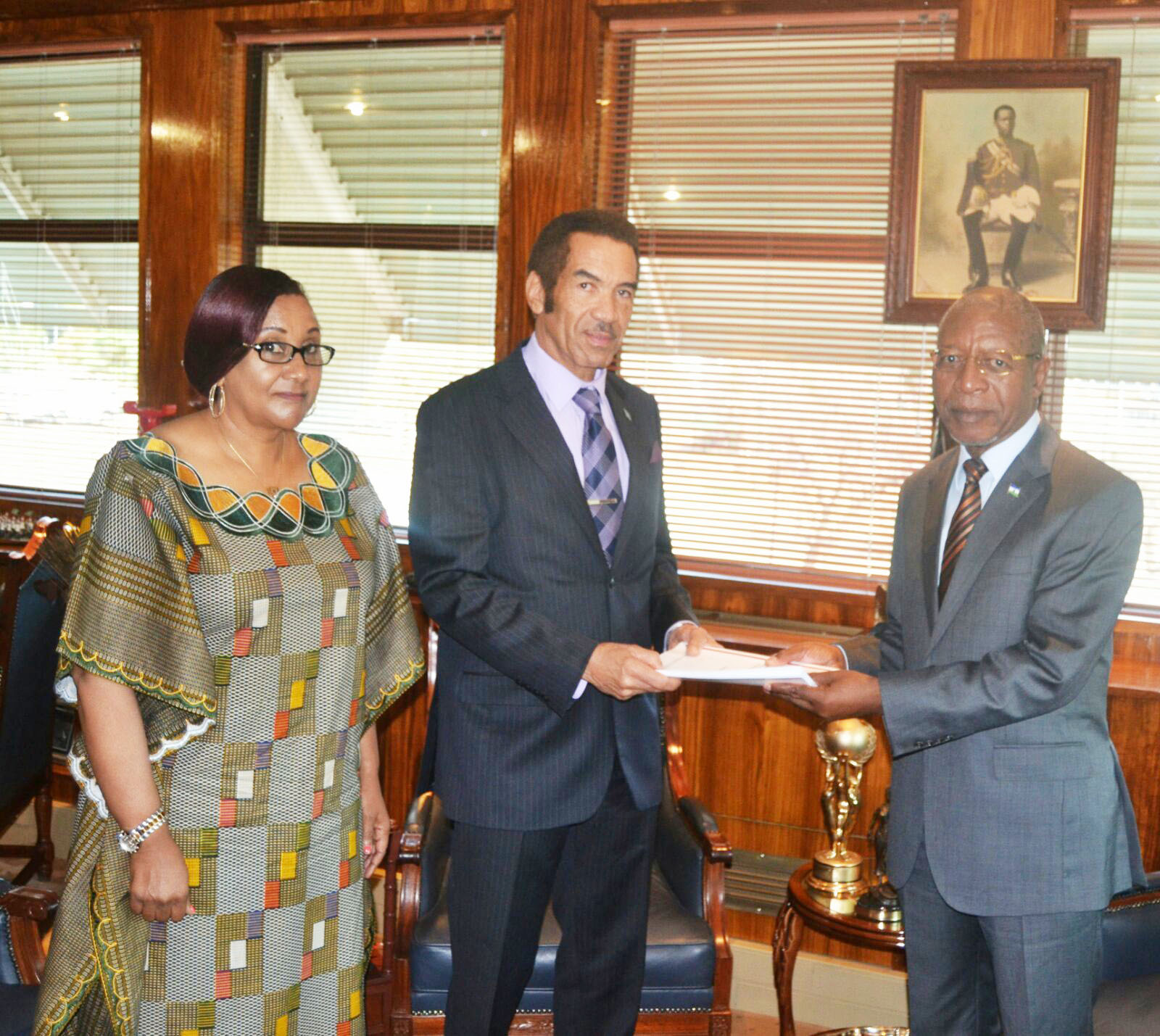Staff Reporters
SADC’s threat to suspend Lesotho was the reason why the government finally decided to accept the Phumaphi report, the Lesotho Times has learnt.
Prime Minister Pakalitha Mosisili had refused to accept the document during the regional body’s Double Troika summit in Gaborone on Monday, reportedly citing Lieutenant-Colonel Tefo Hashatsi’s High Court case challenging the legitimacy of Justice Mpaphi Phumaphi’s inquiry.
The Commission of Inquiry was requested by Dr Mosisili but was assembled and funded by SADC to establish the circumstances surrounding the death of former army commander Lt-Gen Maaparankoe Mahao. Lt-Gen Mahao was shot dead by his military colleagues on 25 June 2015 just outside Maseru, and Justice Phumaphi and his 10-member team conducted their probe between 31 August and 23 October. The commission submitted its report to the SADC Organ on Politics, Defence and Security Cooperation last month, which however, expressed “concern” over Lt-Col Hashatsi’s case and government’s announcement that it would only accept the Phumaphi report after the matter had been finalised.
This week’s meeting in Gaborone was convened to discuss this stalemate, but the Lesotho Times understands Dr Mosisili maintained that his government would only receive the report after the Hashatsi case had been concluded by the courts.
However, after the summit resolved to suspend Lesotho and publicise the report, Dr Mosisili is said to have had a change of heart and decided to take the report.
SADC Organ on Politics, Defence and Security Cooperation chairperson, Mozambique President Filipe Nyusi told reporters in Maputo on Tuesday that he received a phone call from SADC chairperson, Botswana President Ian Khama, informing him of Lesotho’s new position.
“We were very disappointed with the Lesotho authorities,” Mr Nyusi said. “They were refusing to cooperate with SADC in a matter of their own security”.
Mr Nyusi said after the suspension threat, the Lesotho government contacted Mr Khama on Tuesday morning and said it would now receive the report.
Mr Nyusi further said Mr Khama contacted him on the latest development.
“Lesotho officials will meet with us again in a couple of weeks,” Mr Nyusi said.
Meanwhile, the Botswana media claims President Khama “reprimanded” Dr Mosisili during Monday’s meeting for allegedly arriving at the summit late and refusing to take the report.
Dr Mosisili allegedly arrived “in the afternoon” when he was supposed to meet the six regional leaders—Mr Khama (SADC chair), Mr Nyusi, President Jacob Zuma of South Africa, Swaziland Prime Minister Barnabas Sibusiso Dlamini, Tanzania Prime Minister Majaliwa Majaliwa, and Zimbabwe Foreign Affairs Minister Simbarashe Mumbengegwi—at 10am.
“When he arrived, the summit had been moved to another conference where the leaders were now making recommendations to the SADC Heads of State. Upon arrival, Mosisili tried to enter the room where the leaders were and was immediately informed to go and wait in another room.
“At that time, President Khama, who was chairing the meeting, wanted Mosisili not to be allowed to come in as he had earlier refused to meet them,” one of the reports notes.
It was only after South African President Jacob Zuma had “persuaded” Mr Khama to allow Dr Mosisili in that the premier entered the conference room.
“Khama, who is known for his straight talk, is said to have told Mosisili that he should not waste their time as he was the one who requested the commission and as such, must accept the report,” another media outlet noted.
Explaining Lesotho’s new stance, Botswana’s Minister of Foreign Affairs and International Relations, Dr Pelonomi Venson-Moitoi, told a media conference yesterday: “Prime Minister Mosisili agreed to accept the report yesterday (Tuesday) and this changed the complexion of the situation.
“The Troika had earlier recommended either the exclusion or sanction of Lesotho on SADC activities after they refused the report on Monday. Mosilili is supposed to share the report with other concerned parties, especially the opposition, within 14 days. After Mosisili agreed to accept the report, President Khama informed other members of the Troika about the development, who then appreciated it.
“If Lesotho had not accepted the report, SADC was going to make it public but since they have changed their minds, the Lesotho government will make it public.
“One of the reasons why SADC was not happy with Lesotho’s position not to accept the report was because they have spent a lot of money and resources on the country.”


1 comment